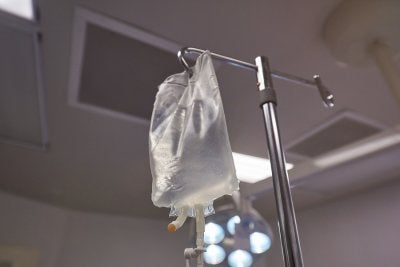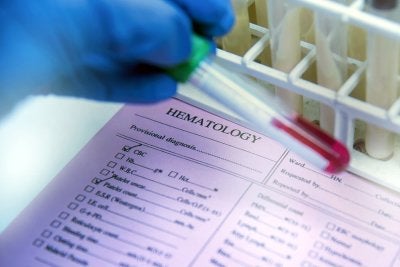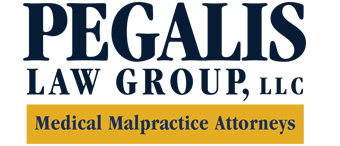-
Why Vaccines Are Important to Health
August is National Immunization Month, so it’s a good time to be sure that you and your loved ones are caught up on your immunizations. It’s hard to overstate the importance of vaccines for protecting your health as well as that of the people around you. Today, pregnant women and all caregivers should always ask their doctor about what vaccines they need. The CDC recommends that all parents, brothers and sisters, grandparents, babysitters, and other caregivers receive the flu vaccine and whooping cough (pertussis) vaccine.
Likewise, the Center for Disease Control and Prevention (CDC) recommends that pregnant women stay up to date on vaccinations during pregnancy. Certain vaccines including for MMR (measles, mumps, and rubella) are recommended before pregnancy and others such as the flu shot can either be given before or during a pregnancy. The whooping cough vaccine is another important vaccine from pregnant women. Each year, about 20 babies die from whooping cough in the U.S., so it’s important that the mother is immune to whooping cough so she can prevent unknowingly spreading this illness to her child.
Vaccines protect you from contracting dangerous but preventable illnesses such as measles and whooping cough. They also prevent you from spreading those diseases to others. If you choose not to vaccinate yourself or your children, you’re putting other people in danger. Children under the age of 12 months—who can’t be vaccinated yet—and people who have weakened immune systems are particularly at risk.
If you are concerned about a misdiagnosis or possible medical error, contact the law firm of Pegalis & Erickson, LLC, in New York. For 45 years, we have advocated for people of all ages, in order to help our clients financially and make healthcare safer for everyone. You can reach us today by calling (516) 684-2900.
Attorney Advertising

-
What Are the Symptoms of Sepsis?
Sepsis is a life-threatening condition that results when the body is trying to fight off an infection, causing injury to its own tissue and organs. If a medical professional who is providing care for you has failed to identify sepsis, it may be considered medical malpractice. It’s important to know what the warning signs of sepsis are so that you can seek treatment right away if you experience them. The symptoms of sepsis include sudden fever or low body temperature, breathing much more quickly than usual, a rapid heartbeat, feeling severely confused or disoriented, and finding yourself short of breath. If you have more than one of these symptoms, treat it as a medical emergency.
 If you are concerned about a misdiagnosis or possible medical error, contact the law firm of Pegalis & Erickson, LLC, in New York. For 45 years, we have advocated for people of all ages, in order to help our clients financially and make healthcare safer for everyone. You can reach us today by calling (516) 684-2900.
If you are concerned about a misdiagnosis or possible medical error, contact the law firm of Pegalis & Erickson, LLC, in New York. For 45 years, we have advocated for people of all ages, in order to help our clients financially and make healthcare safer for everyone. You can reach us today by calling (516) 684-2900.Attorney Advertising
-
Tips to Advocate for Your Health
As a patient, you can’t depend solely on your healthcare providers to take care of your health—you need to take action to protect yourself. The more proactive you are, the more likely it is that you will get the kind of care you deserve. Here are some tips for effectively advocating for your health.
Pay attention to your surroundings.
When you’re a patient, it’s easy to be passive as you assume that the care you are receiving is correct. It’s important, however, to stay alert and focused on everything that is going on. When you encounter a new person who is providing care for you, check their ID badge. Make sure you know whether the provider is a doctor, RN, LPN, nurse practioner, physician’s assistant or a medical resident. Don’t be afraid to speak up.
Don’t be afraid to speak up.
The most important thing you can do to advocate for yourself is to speak up on your own behalf. If you don’t understand something, ask that it be explained to you. Make sure that you understand any treatments, therapies, or medicines that are being given to you. If you suspect that you are being confused with a different patient, don’t hesitate to say something. Make sure that if you are receiving medicine or a prescription, that it is the correct medication for you. Ask what it is for and why you are getting it. There have been cases where IV medications were given to the patient in the next bed by mistake.Participate in the decision-making process.
Remember that you have a say in your own healthcare. Talk to your physician about every major aspect of your medical care, and seek out a second opinion when necessary. If you’re getting a new medicine, make sure you get detailed instructions for its use, and ask about side effects. If surgery is suggested, ask about alternatives and do get a second opinion if possible. Do find out about all risks associated with the surgery. The more pertinent information you have, the better equipped you will be to make the right decisions for your well-being.If you are concerned about misdiagnosis or possible medical error, contact the law firm of Pegalis & Erickson, LLC, in New York. For 45 years, we have advocated for people of all ages, in order to help our clients financially and make healthcare safer for everyone. You can reach us today by calling (516) 684-2900.
-
The Risks of Anesthesia
When most people think about possible accidents during medical care, they tend to overlook anesthesia. Anesthesia in itself is a safe and effective medical practice that suppresses the nervous system, thereby eliminating awareness or sensation during medical procedures.
The potential anesthesia errors exist in position-related injuries, oxygen deprivation, spinal cord injury, failure to maintain blood pressure, and other provider-related errors which can place that patient at serious risk of an anesthesia-related injury.
 Your risk of complications related to anesthesia depends on a number of factors including your general physical health. One potential problem is when a medical professional is in a hurry to administer anesthesia in an emergency and fails to take your physical health into account. Certain conditions such as obesity, obstructive sleep apnea, diabetes, high blood pressure, and health issues related to your heart, kidneys, or lungs may increase your risk of complications as can smoking, a history of heavy alcohol use, and certain medications like aspirin that increase bleeding.
Your risk of complications related to anesthesia depends on a number of factors including your general physical health. One potential problem is when a medical professional is in a hurry to administer anesthesia in an emergency and fails to take your physical health into account. Certain conditions such as obesity, obstructive sleep apnea, diabetes, high blood pressure, and health issues related to your heart, kidneys, or lungs may increase your risk of complications as can smoking, a history of heavy alcohol use, and certain medications like aspirin that increase bleeding. While anesthesia is generally very effective, about 1 to 2 people out of every 10,000 may experience a condition known as anesthesia awareness where they are partially awake during general anesthesia. Patients are often unable to move or speak and this can lead to long-term physiological issues such as post-traumatic stress disorder. Unfortunately, although not common, death occurs as a result of general anesthesia in roughly 1 out of every 100,000 to 200,000 patients.
If you are concerned about a misdiagnosis or possible medical error, contact the law firm of Pegalis & Erickson, LLC in New York. For 46 years, we have advocated for people of all ages, in order to help our clients financially and make healthcare safer for everyone. You can reach us today by calling (516) 684-2900.
Attorney Advertising
-
Taking Action During Men’s Health Month
 In recent years, numerous studies have confirmed a disturbing trend: Men tend not to live as long as women. One of the reasons for this, unfortunately, is that men are far less likely than women to visit their doctors. June is Men’s Health Month, which means it’s the perfect opportunity to schedule a routine physical at your physician’s office. It’s also a time to be mindful of some of the most pressing health challenges that men face, including testicular cancer, prostate cancer, heart disease, high blood pressure, and depression. Diagnosing cancer and other serious illnesses as early as possible is the best way to raise the chances of a good prognosis, so it’s important to be checked regularly for any conditions you are at risk for.
In recent years, numerous studies have confirmed a disturbing trend: Men tend not to live as long as women. One of the reasons for this, unfortunately, is that men are far less likely than women to visit their doctors. June is Men’s Health Month, which means it’s the perfect opportunity to schedule a routine physical at your physician’s office. It’s also a time to be mindful of some of the most pressing health challenges that men face, including testicular cancer, prostate cancer, heart disease, high blood pressure, and depression. Diagnosing cancer and other serious illnesses as early as possible is the best way to raise the chances of a good prognosis, so it’s important to be checked regularly for any conditions you are at risk for. -
Skin Cancer: Know the Dangers and Take Action
 It is Skin Cancer Awareness Month and professional skin checks with your dermatologist are important for everybody. The effectiveness of early treatment is why it’s so critical to diagnose skin cancer as early as possible. Here’s what you need to know about #skincancer:
It is Skin Cancer Awareness Month and professional skin checks with your dermatologist are important for everybody. The effectiveness of early treatment is why it’s so critical to diagnose skin cancer as early as possible. Here’s what you need to know about #skincancer: How prevalent is skin cancer and is it treatable?
Skin cancer is the most common type of cancer. In the U.S. there are more newly diagnosed cases of skin cancer today than all other cancers put together. Some 20 percent of Americans will develop a skin cancer in their lifetime. The three most common types of skin cancer are melanoma, squamous cell carcinomas, and basal cell carcinomas. Melanoma is highly treatable in its early stages, but it becomes progressively harder to treat as it worsens. Squamous cell carcinomas and basal cell carcinomas are also both curable if they are caught early.Can skin cancer be misdiagnosed?
Unfortunately, signs of skin cancer do get missed by medical professionals, even experienced ones, during skin checks. Dangerous carcinomas may be confused with acne, and a melanoma can be mistaken for a harmless mole. Early diagnosis is the key to effective treatment for many types of skin cancer. If a medical professional failed to diagnose your skin cancer in a timely way, you can call an experienced medical negligence attorney for a free consultation to find out what your rights are.If you are concerned about a misdiagnosis or possible medical error, contact the law firm of Pegalis & Erickson, LLC in New York. We advocate for people of all ages to help our clients obtain justice and make healthcare safer for everyone. You can reach us now at (516) 684-2900.
-
What Are the Symptoms of a Stroke?

A stroke should always be treated as a medical emergency, and immediate help should be sought. The sooner treatment is provided for stroke, the more likely it is to be effective at preventing extensive brain damage. That’s why it’s so important to know what the symptoms of stroke are. People who are having a stroke may feel lightheaded, experience sudden fatigue, or have trouble keeping their balance. They may also experience abrupt vision problems, or be struck by a sudden and painful headache. However, the most common signs of stroke are slurred speech, numbness and signs of paralysis in one arm, and drooping in one side of the face. If a person displays any of these three signs, call 911.
If you are concerned about a misdiagnosis or possible medical error, contact the law firm of Pegalis & Erickson, LLC in New York. For 45 years, we have advocated for people of all ages, in order to help our clients financially and make healthcare safer for everyone. You can reach us today by calling (516) 684-2900.
-
Health Tests to Ask Your Doctor About
Getting the right screenings from your doctor when you need them is essential to staying healthy and protecting yourself from potential health problems. All too often, however, doctors don’t recommend the tests that their patients require. Here are some of the most important health tests you should be sure to ask about during your next visit to your doctor’s office.
Depression
If you’re showing any of the symptoms of depression, you should ask your doctor about getting a screening. Some of the most common signs of depression include a nagging feeling of hopelessness, lack of energy, poor appetite, and feeling little interest or excitement over activities that once brought you pleasure.Blood pressure
High blood pressure, or hypertension, can raise your chances of stroke, heart failure, and other serious health problems. If you are over the age of 20, you should have a blood pressure test performed at least once every two years. If repeated tests show that you have hypertension, your doctor can recommend a course of action to lower your blood pressure. Cholesterol
Cholesterol
Having high cholesterol levels can put you at greater risk of heart disease. Unfortunately, high cholesterol generally doesn’t present any symptoms, which makes routine testing more important. If you’re older than 35, you should have your cholesterol levels checked at least once every five years.Vitamin D deficiency
As many as three-fourths of all Americans may lack the vitamin D they need to keep their muscles and bones healthy. Individuals most at risk for vitamin D deficiency include people with osteoporosis, people who have celiac disease, and people who are obese. If you think you may be at higher risk of vitamin D deficiency, ask your doctor to test you.If you are concerned about a misdiagnosis or possible medical error contact the law firm of Pegalis & Erickson LLC in New York. For 45 years we have advocated for people of all ages, in order to help our clients financially and make healthcare safer for everyone. You can reach us today by calling (516) 684-2900.
-
National Minority Health Month
Unfortunately, not all Americans can count on receiving the same quality of medical care. April is National Minority Health Month, a time to familiarize oneself with the discrimination that minorities may experience in healthcare.
Findings from the National Healthcare Quality and Disparities Reports highlighted the discrepancy between the levels of care received by underserved groups such as minorities, those in rural areas, and the poor, in comparison to other people: African-American received worse medical care than Caucasians for about 40% of measures. Hispanics received worse care than non-Hispanic Caucasians for approximately 60% of measures, and Asians receive worse care for about 20% of measures. Those in poverty received worse care that high-income individuals for approximately 80% of measures.
 Further, according to recent research about minorities and medical care, many feel brushed off or condescended to by their healthcare providers. The results can be delayed diagnoses, worse prognoses, and evens death. If you belong to an underserved population group, it is all the more critical that you keep careful records of the treatment you receive from healthcare professionals. Take the initiative to ask for tests that are recommended for your age and condition.
Further, according to recent research about minorities and medical care, many feel brushed off or condescended to by their healthcare providers. The results can be delayed diagnoses, worse prognoses, and evens death. If you belong to an underserved population group, it is all the more critical that you keep careful records of the treatment you receive from healthcare professionals. Take the initiative to ask for tests that are recommended for your age and condition. If you are concerned about a diagnosis made later than it should have been, a misdiagnosis, or serious errors in medical treatment, contact the New York law firm Pegalis & Erickson, LLC. We advocate for people of all ages and backgrounds and help our clients successfully resolve their cases for financial support and to make healthcare safer for all. You can reach us today by calling (516) 684-2900.
-
Hospital Errors to Watch For
When you go to the hospital, it’s only natural to expect that you’ll be treated in a careful, competent, and professional way. Unfortunately, that isn’t always the case. If you’re treated improperly in a hospital setting, it can have serious effects on your health and well-being. You can do your part to protect yourself as a patient by watching for these common hospital errors :
Medication errors
If you are given the wrong medication—or the wrong dosage—in a hospital setting, the results can be deadly. Not only might your condition be worsened by not receiving the medication you need, but the medication you do get could have an adverse reaction. Make sure that you understand your medication instructions, and that you have all of your medication information with you at the hospital. Poor hand hygiene
Poor hand hygiene
The majority of hazardous germs and viruses are spread from person to person through their hands. It’s important for healthcare professionals to clean their hands using hand sanitizer or soap and water between treating each patient. Failure to observe this rule can result in pathogens being spread from one patient to another, resulting in needless sickness.False patient identification
As unbelievable as it may sound, it happens: A patient’s identity is not confirmed by the medical professionals providing treatment, and the patient receives the wrong treatment. Whether it means not getting the right treatment, being misdiagnosed, or even being subjected to needless treatment such as surgery, false patient identification is a serious issue. Always make sure that every staff member that treats you calls you by your name and checks your wristband.If you are concerned about a misdiagnosis or possible medical error, contact the law firm of Pegalis & Erickson LLC in New York. For 45 years we have advocated for people of all ages, in order to help our clients financially and make healthcare safer for everyone. You can reach us today by calling (516) 684-2900.
Recent Posts
Popular Posts
- Is There Anything That You Can Do to Help Prevent Medication Errors?
- When Are Hospitals found Negligent for Medical Errors?
- A Look at Common Orthopedic Birth Injuries
- Annamarie Bondi-Stoddard Named One of The Top Attorneys by New York Metro Super Lawyers!
- New Rule for Hospitals | Hospital and Physician Partners Face Penalties for Privacy Leaks
categories
- Uncategorized
- Infographic
- Patient Safety
- Patient Health
- Stillbirth
- Birth Injuries
- Medical Malpractice
- Medical Negligence
- Event
- Erb's Palsy
- Injury
- ER
- Video
- Cancer Misdiagnosis
- Medication Errors
- Cerebral Palsy
- Medical Negligence Lawyer
- Anesthesia Injuries
- Brachial Plexus
- Prostate Cancer
- About Us
- Men's Health
- Skin Cancer
- Breast Cancer
- Misdiagnosis
